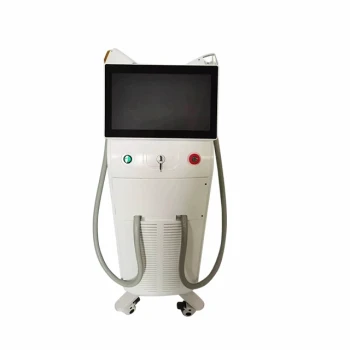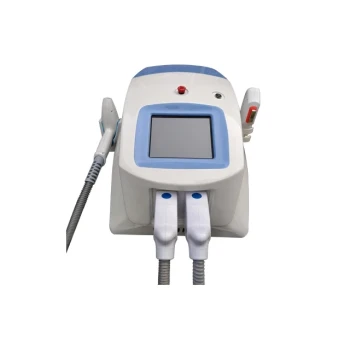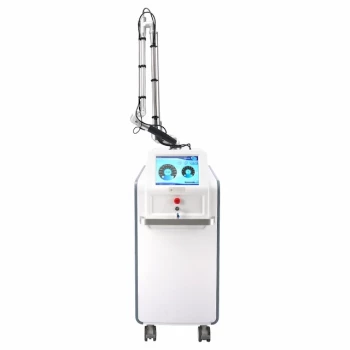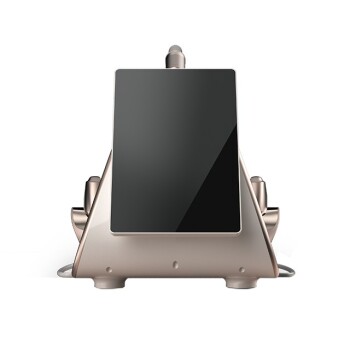While laser hair removal is a highly effective procedure for many, it is not universally suitable. Individuals with certain medical conditions, skin and hair types, or those taking specific medications are poor candidates due to a high risk of adverse effects or a low chance of success. This includes people with low-contrast hair and skin (e.g., blonde hair), active skin infections, a history of keloid scarring, or those taking photosensitizing drugs.
The safety and effectiveness of laser hair removal hinge on one core principle: the laser's ability to target the dark pigment (melanin) in the hair follicle without damaging the surrounding skin. Any condition or factor that disrupts this process or compromises the skin's ability to heal creates an unacceptable risk.

The Fundamental Barrier: Hair and Skin Contrast
The technology of laser hair removal is based on a principle called selective photothermolysis. The laser emits a wavelength of light that is specifically absorbed by the melanin in your hair, which then converts to heat and destroys the follicle.
Why Light-Colored Hair Is a Poor Target
Blonde, gray, white, and some red hair contains very little of the specific type of melanin (eumelanin) that lasers target. Without this pigment, the laser energy has nothing to absorb into and simply passes through without effect. For these hair colors, the procedure is ineffective.
The Risks of Low Contrast on Darker Skin
For individuals with darker skin tones (Fitzpatrick types IV-VI), the high concentration of melanin in the skin can be a challenge. Older laser technologies can struggle to differentiate between the melanin in the hair and the melanin in the skin. This can lead to the laser heating the skin itself, increasing the risk of burns, blistering, and post-inflammatory hyperpigmentation (dark spots).
Modern lasers, specifically the 1064 nm Nd:YAG laser, are designed to bypass the melanin in the epidermis, making the treatment much safer for darker skin. However, the risk is still higher than on fair skin, and treatment requires a highly experienced practitioner.
Medical Conditions That Inhibit a Safe Outcome
Certain health issues can directly interfere with the treatment's safety or your body's ability to recover from the controlled "injury" the laser creates.
Compromised Skin Healing
Conditions that impair your body's natural healing process make you a poor candidate. A history of keloid scarring (where the skin produces excessive, raised scar tissue) is a significant contraindication, as the laser can trigger this abnormal response.
Similarly, uncontrolled diabetes can impair circulation and the body's healing mechanisms, increasing the risk of infection and slow recovery.
Active Skin Conditions in the Treatment Area
Applying a powerful laser to already inflamed or compromised skin is dangerous. Active conditions like a skin infection, eczema, psoriasis, or a herpes simplex virus (HSV) outbreak in the treatment area are absolute contraindications. The laser can severely worsen the condition and lead to significant complications.
Systemic and Autoimmune Diseases
Autoimmune diseases, particularly those that involve photosensitivity like lupus, can be triggered by the intense light of the laser, potentially causing a systemic flare-up of the condition.
Common Pitfalls and External Factors
Beyond your baseline skin and health, certain temporary situations and medications can make you an unsuitable candidate for laser hair removal.
Photosensitizing Medications
This is one of the most critical and often overlooked contraindications. Many common medications dramatically increase your skin's sensitivity to light.
Treating skin in this state can cause severe burns, blistering, and pigmentation issues. Common culprits include isotretinoin (Accutane), certain antibiotics (like tetracyclines), tricyclic antidepressants, and some diuretics. You must wait at least six months after stopping Accutane before undergoing laser treatment.
Pregnancy or Breastfeeding
Laser hair removal is not recommended for individuals who are pregnant or breastfeeding. While there is no evidence of direct harm to the fetus, the lack of safety studies means the risk is unknown. Hormonal fluctuations during this time can also make hair growth patterns unpredictable and results less reliable.
Recent Sun Exposure or Tanning
A recent tan, whether from the sun or a tanning bed, significantly increases the amount of melanin in your skin. This creates the same risk profile as naturally dark skin, elevating the chance of burns and adverse effects. You must avoid sun exposure on the treatment area for several weeks before and after your sessions.
Making the Right Choice for Your Goal
To ensure safety and efficacy, a thorough evaluation by a qualified professional is non-negotiable. Use this checklist as a guide for your consultation.
- If your primary focus is removing light-colored hair (blonde, gray, red): Laser hair removal will be ineffective; you should investigate alternatives like electrolysis.
- If you have a darker skin tone: You must seek a clinic with an Nd:YAG laser and a technician with extensive, proven experience treating skin of color.
- If you are taking any medication or have a chronic health condition: You require clearance from your prescribing doctor or a dermatologist before proceeding with any laser treatment.
- If you have an active tan or have been in the sun recently: You must wait until your skin has returned to its natural baseline color to proceed safely.
Understanding the limitations of the technology is the first step toward achieving a safe and successful outcome.
Summary Table:
| Poor Candidate Profile | Primary Reason for Exclusion |
|---|---|
| Light Hair (Blonde, Gray, Red) | Laser lacks pigment (melanin) to target, making it ineffective. |
| Darker Skin Tones (Fitzpatrick IV-VI) | Higher risk of burns without specialized Nd:YAG laser and expert technician. |
| Active Skin Conditions (Eczema, Psoriasis, Herpes) | Laser can severely worsen the condition. |
| History of Keloid Scarring | Risk of triggering excessive, raised scar tissue. |
| Taking Photosensitizing Medications (e.g., Accutane) | Dramatically increases risk of severe burns and blistering. |
| Recent Tan or Sun Exposure | Elevated skin melanin increases burn risk. |
| Pregnant or Breastfeeding | Lack of safety studies; hormonal changes affect results. |
Ready to Offer Safe and Effective Laser Hair Removal?
As a clinic or premium salon owner, your clients' safety and satisfaction are paramount. BELIS specializes in providing medical aesthetic professionals with advanced, reliable equipment designed for superior results across diverse skin and hair types.
Our professional-grade lasers, including the Nd:YAG platform, are engineered to maximize safety and efficacy, helping you build trust and expand your client base confidently.
Contact our experts today to find the perfect laser solution for your practice and ensure you can safely treat a wider range of clients.
Visual Guide

Related Products
- Trilaser Diode Hair Removal Machine for Beauty Clinic Use
- Diode Tri Laser Hair Removal Machine for Clinic Use
- Clinic Diode Laser Hair Removal Machine with SHR and Trilaser Technology
- Diode Laser SHR Trilaser Hair Removal Machine for Clinic Use
- Clinic Use IPL and SHR Hair Removal Machine with Nd Yag Laser Tattoo Removal
People Also Ask
- Why do high-risk areas such as the periareolar region require specialized equipment? Ensure Safety in Hair Removal
- What is the mechanism of action for laser hair removal? Master Selective Photothermolysis for Clinic Results
- How does vacuum-assisted technology in laser hair removal systems optimize treatment? Pain-Free Precision Explored
- What are the technical advantages of Pulse Burst technology vs. long-pulse in laser hair removal? Master Safety & Power
- What post-treatment care is recommended after a laser hair removal session? Expert Guide to Lasting Results



















